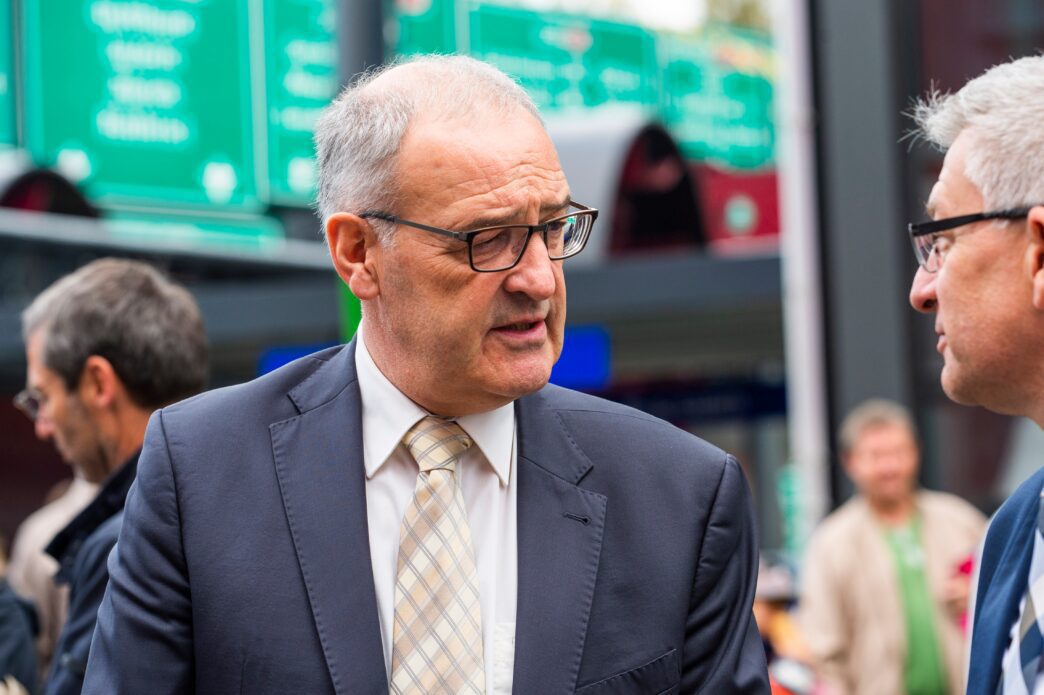Executive Summary
- Switzerland’s economy minister, Guy Parmelin, held a third round of talks in Washington to reduce the 39-percent tariffs imposed by President Donald Trump on Swiss imports.
- The substantial tariffs have significantly impacted Switzerland’s export-driven economy, leading to a reduced growth forecast, with the nation seeking a 15-percent rate comparable to the EU.
- Executives from prominent Swiss companies met with President Trump to highlight the tariffs’ severe impact on industries such as watchmaking, industrial machinery, chocolate, and cheese, while the pharmaceutical sector faces ongoing threats of future tariffs.
The Story So Far
- Switzerland’s economy minister is in Washington for talks aimed at reducing the 39-percent tariffs imposed by President Donald Trump on Swiss imports, which have significantly impacted the nation’s export-driven economy and its growth forecast. These efforts are also driven by a desire to achieve competitive parity, as other major trading partners like the European Union and Japan have negotiated much lower tariff rates.
Why This Matters
- President Trump’s 39% tariffs are significantly impacting Switzerland’s export-driven economy, leading to a reduced growth forecast and severe challenges for key industries such as watchmaking and industrial machinery. This also creates a competitive disadvantage for Swiss businesses compared to other nations that have secured lower tariff rates, underscoring Switzerland’s urgent need to negotiate a more favorable trade agreement to protect its vital export sectors and maintain global competitiveness.
Who Thinks What?
- Switzerland, represented by Economy Minister Guy Parmelin and prominent Swiss companies, seeks to reduce the 39-percent tariffs imposed by President Donald Trump, citing severe economic impact on its export-driven industries and a competitive disadvantage compared to other nations.
- President Donald Trump’s administration implemented 39-percent tariffs on Swiss imports as part of its global tariff strategy.
Switzerland’s economy minister, Guy Parmelin, was in Washington on Thursday for a third round of talks aimed at reducing the 39-percent tariffs imposed by President Donald Trump on Swiss imports. The Alpine nation is seeking to lower the substantial duties, which have significantly impacted its export-driven economy since their announcement in August.
Negotiations and Economic Impact
Minister Parmelin was scheduled to meet with U.S. Trade Representative Jamieson Greer. The tariffs, among the highest in President Trump’s global tariff strategy, have prompted Switzerland to reduce its 2026 growth forecast. Bloomberg News recently reported that Switzerland was nearing an agreement to reduce the tariffs to 15 percent, a rate comparable to that applied to European Union goods, citing unnamed sources.
This visit marks Parmelin’s third trip to Washington since the tariffs were implemented. He previously made an emergency trip in early August with Swiss President Karin Keller-Sutter, followed by a second visit in September. Both earlier trips concluded without an immediate resolution.
Industry Concerns
Last week, executives from six prominent Swiss companies, including watchmaker Rolex and luxury goods giant Richemont, met with President Trump. Their aim was to highlight the severe impact these duties are having on their respective industries, particularly watchmaking, industrial machinery, chocolate, and cheese.
While the pharmaceutical industry, Switzerland’s largest export sector, is currently exempt, it faces ongoing threats of potential tariffs from President Trump. Swiss businesses also express concern over a competitive disadvantage, as the European Union and Japan have negotiated a 15-percent tariff rate, and Britain secured a 10-percent rate.
Outlook
The ongoing discussions underscore Switzerland’s persistent efforts to mitigate the economic repercussions of the tariffs. Securing a more favorable trade agreement remains a critical objective for Bern to safeguard its vital export sectors and maintain competitive parity in global markets.








